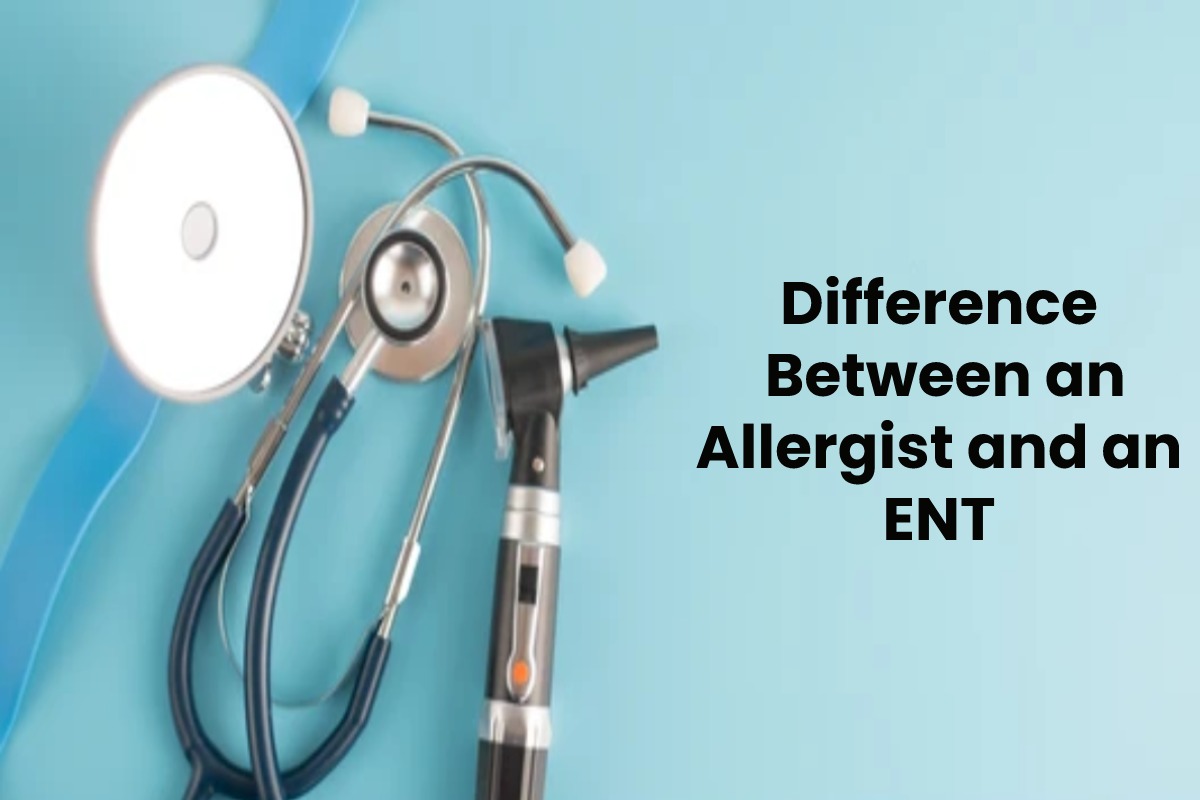Difference Between an Allergist and an ENT
Distinguishing between an allergist and an ENT can be challenging. You may have a particular condition, and whether to visit an allergist or an ENT becomes more confusing. An allergist is a physician who deals with problems such as the reaction of food, asthma, and nasal inflammation, while an ENT is an expert who deals with issues that need surgery like bone or cartilage deformities. An ENT is known for surgery because they begin with general surgery and progress in neck and head medicine training when they start their studies. This article will help you understand more about the difference between an allergist and an ENT.
Table of Contents
An Allergist
You can get help from an allergist or immunologist if you have immune system problems. Chemical reactions occur in the body due to foreign particles or whatever your immune system perceives as a threat. However, your body overreacts, resulting in a variety of symptoms.
When Should You See an Allergist?
Allergists have specialized expertise in identifying and treating allergic inflammation. They cannot, however, undertake procedures. When your body determines that a chemical is hazardous, you may develop allergies. Even if the substance is not harmful to the body, the body’s defensive mechanisms or antibodies alert the immune system, causing the immune system to overreact and cause an allergic reaction. Allergy symptoms differ based on the allergen (American Academy of Allergy Asthma and Immunology). Face pressure, nasal congestion, throat clearing, discharge, and sneezing are all symptoms of environmental allergies. Chronic sinus discomfort and headaches are common in people with environmental allergies.
Allergies substantially impact your quality of life, regardless of your age. When it’s difficult to pinpoint the allergen you’re allergic to, your condition can deteriorate. An allergist can help with this. They determine the cause of the allergic reaction and guide how to prevent contact with the allergen and manage the symptoms. Here are some situations in which you should see an allergist for more effective treatment:
Mouth and Throat Irritation Regularly
Food allergies do not necessarily manifest themselves in the same manner as peanut or shellfish sensitivities do. Instead, they may cause daily irritation and soreness in the mouth, face, and throat. Some food allergies or intolerances might be challenging to detect without the assistance of an allergist qualified to test for food allergies safely.
Failure of Allergy Medications
You may have existing seasonal allergies, and you should see an allergist even if you know it. Sometimes the medications you are using can fail to treat your allergy, and in such a case, you should see an allergist for more vital medicines which will help you control your symptoms.
Insomnia or Persistent Snoring
Most allergens produce substantial sinus irritation. This might make breathing difficult while sleeping, resulting in sleeplessness. If you experience frequent sleeping or snoring difficulties, make sure you see an allergist see if allergies are to blame.
Infections of the Sinus and Ears
Specific allergens can create inflammation in your sinuses and Eustachian tubes, preventing them from emptying.
ENT
They undertake ENT surgery to correct flaws and damage in the infected, painful areas that cause breathing problems, hearing problems, throat problems, and neck-related conditions. If you have an ear infection, you should see an ENT surgeon.
When Should You See an ENT Specialist?
If you have any of the following symptoms, you should visit an ear, nose, and throat specialist.
Hearing Impairment
As you become older, you will experience hearing loss. However, unexpected hearing loss could indicate a more severe condition. When you need help with this condition, an ear, nose, and throat physician will be able to determine what’s wrong and assist you in receiving any necessary treatments to improve your hearing. Your ENT may refer you to an audiologist to be fitted for hearing aids if you require them.
A lot of Snoring in a Child
Adults are used to snoring, while it’s hard for kids to snore, although there are some. The reason is not necessarily a result of any severe illness, but it’s best to ask your physician if you should visit an ENT. The reason can result from apnea and can lead to the child wetting the bed or even leading to issues concerning the facial bone.
Long-term (chronic) Difficulties with the Throat, Ear, or Sinuses
One of the most prevalent reasons parents take their children to the doctor is ear infections. ENTs usually recommend antibacterials, and when the conditions become worse, surgery is needed.
Tonsils Infection
Physicians recommend antibacterial for treatment or recommend the removal of the tonsils depending on the severity. For a better treatment, you should consider visiting an ENT.
A Lump in Your Throat
A long bump in the neck can be cancerous, affecting the mouth, thyroid, throat, or blood. Cancer affects these parts and is known to move to the lymph glands as the first thing. This is another reason you should see an ENTsince; lymph glands that are inflamed signify a severe condition. They are mainly due to specific diseases such as ear infections and pharyngitis.
Other symptoms include:
- Difficulties in breathing
- Tumour growth in your nose, ears and throat
- Asthma
- Allergy
- Deviated septum
- Nose bleeding
- Losing of hair
- Hoarseness
The Relationship Between an Allergist and an ENT
For the best results, allergists and ENT surgeons frequently collaborate. They are aware of the parallels between situations. When you need surgery, an allergist may refer you to an ENT specialist, and an ENT specialist may refer you to an allergist for an allergic reaction.
Bottom Line
You can see that an allergist and an ENT have a difference in the issues that they deal with. If you need an ENT physician, Philadelphia-based ENT doctor is here for you. They provide cutting-edge, comprehensive ENT care with an entire staff of highly trained medical and surgical ENT specialists. Adults and children with ENT or otolaryngology illnesses or diseases, thyroid issues, sleep disorders, sinus disease, allergies, hearing loss, voice problems, throat or neck cancer, and other concerns can find answers at this facility.


